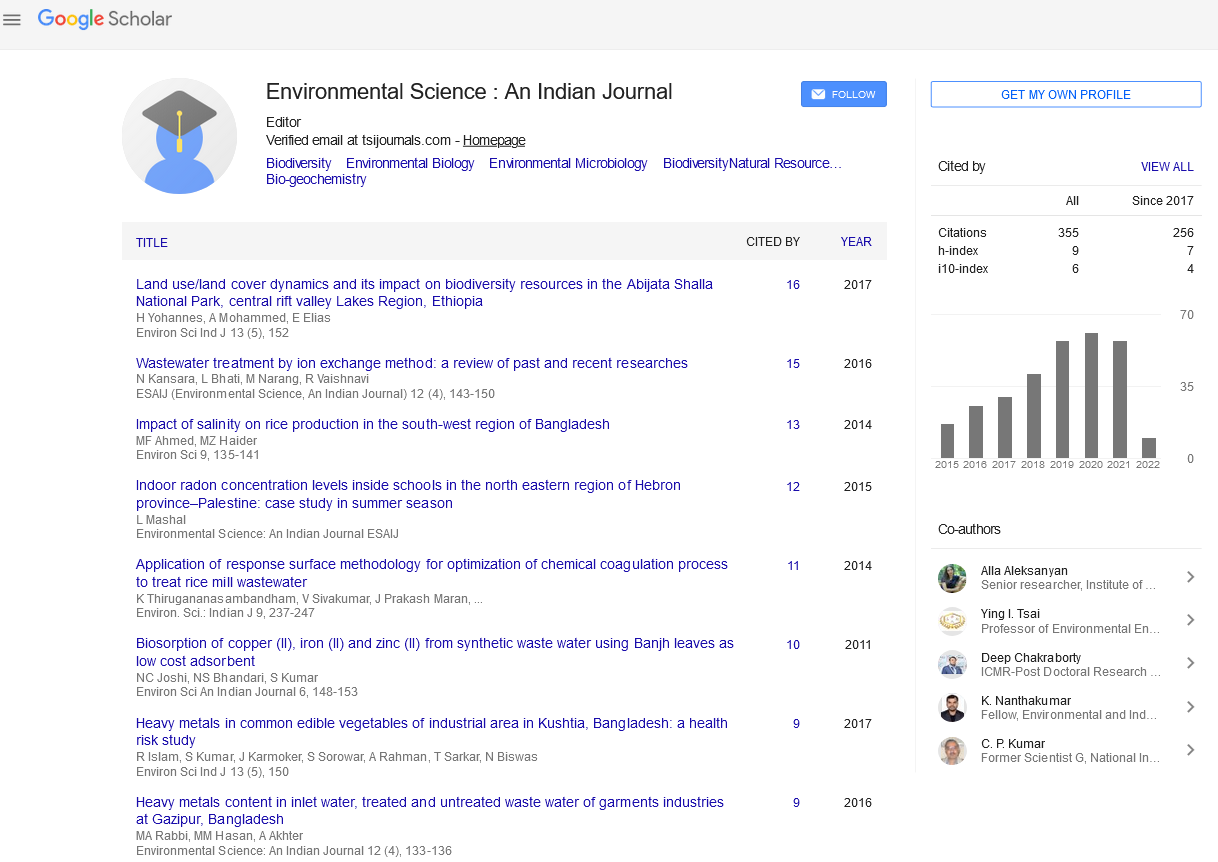Abstract
Fruit and Vegetable Waste Composting through Passive Aeration System: A Strategic Waste Management Method
Author(s): ASLAM HMUOrganic waste (kitchen, garden/lawn, and agricultural) composting has been done in the current study in which passive air vessel has been applied to manage organic waste. The method was used with some innovations to increase the efficiency while keeping the process cost effective. Compost Seeds were also prepared by using vegetable waste and food scrap as substrate to enhance the degradation of waste. Initial analyses of waste i.e. weight, moisture content and bulk density measurements were carried out to retain best balance of C/N ratio and moisture. The experiment was then established followed by daily measurement of temperatures, weekly measurement of evolved CO2, weekly turning and application of moisture. The matured compost was analyzed on the basis of physicochemical parameters such as color, moisture content, bulk density, water holding capacity, pH and electrical conductivity. Exceptional results were seen with bulk density of 864.62±22.30 lbs/cu yd, moisture content 49.30±0.78 %, water holding capacity 138.70±5.73 %, pH 10.23±0.31 and electrical conductivity 7.46±0.025 dS/m which means that it is an efficient method and would be best practicable solution for the management of organic waste. This composting technique was less labor intensive, required less installing space and did not affect by unfavorable weather conditions due to its efficient design. It was included manual turning to obtain quality compost yield within short time period due to high temperature retained within vessel..

